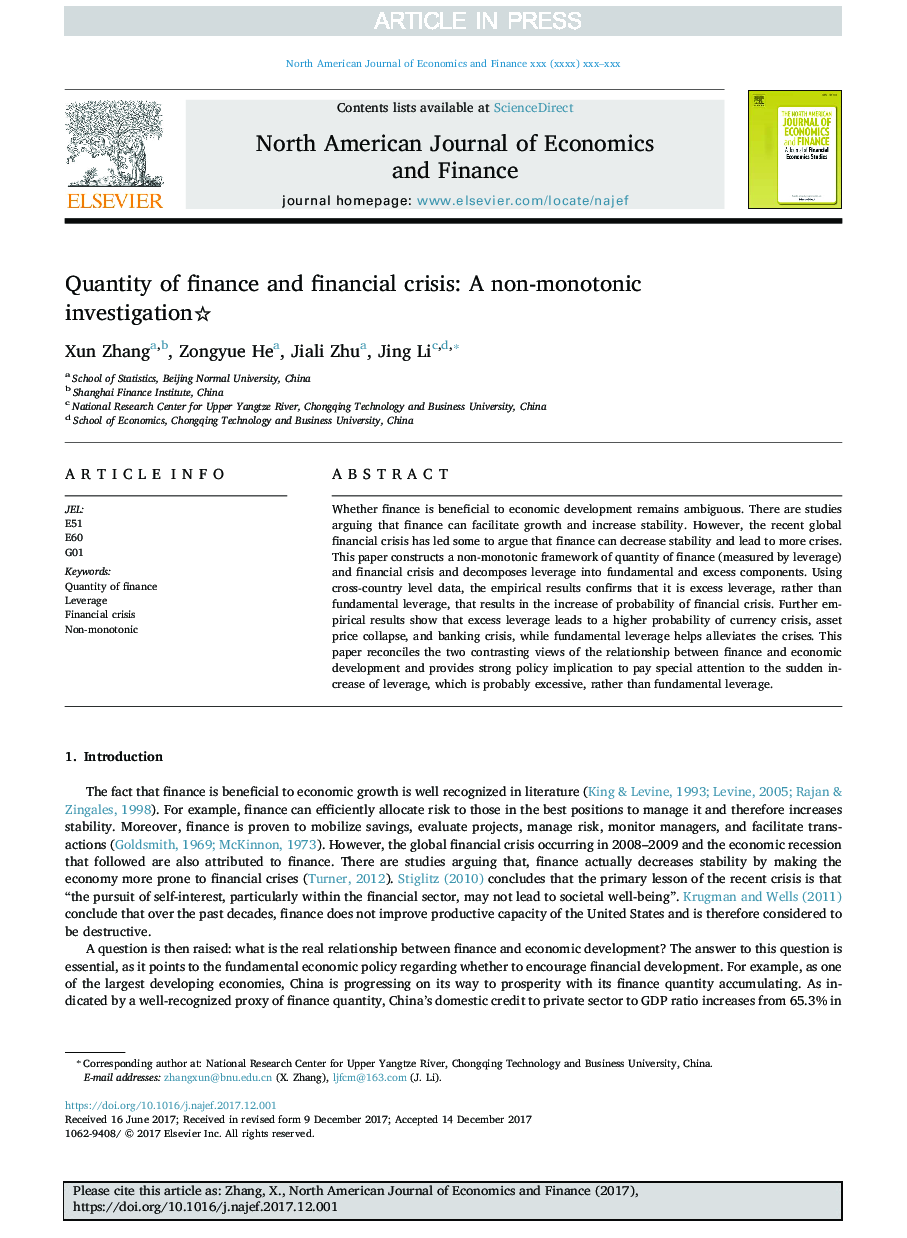| Article ID | Journal | Published Year | Pages | File Type |
|---|---|---|---|---|
| 7373854 | The North American Journal of Economics and Finance | 2018 | 11 Pages |
Abstract
Whether finance is beneficial to economic development remains ambiguous. There are studies arguing that finance can facilitate growth and increase stability. However, the recent global financial crisis has led some to argue that finance can decrease stability and lead to more crises. This paper constructs a non-monotonic framework of quantity of finance (measured by leverage) and financial crisis and decomposes leverage into fundamental and excess components. Using cross-country level data, the empirical results confirms that it is excess leverage, rather than fundamental leverage, that results in the increase of probability of financial crisis. Further empirical results show that excess leverage leads to a higher probability of currency crisis, asset price collapse, and banking crisis, while fundamental leverage helps alleviates the crises. This paper reconciles the two contrasting views of the relationship between finance and economic development and provides strong policy implication to pay special attention to the sudden increase of leverage, which is probably excessive, rather than fundamental leverage.
Related Topics
Social Sciences and Humanities
Economics, Econometrics and Finance
Economics and Econometrics
Authors
Xun Zhang, Zongyue He, Jiali Zhu, Jing Li,
